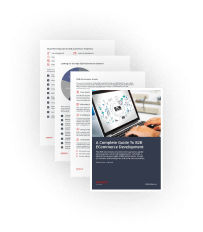Are you familiar with a situation when you cannot access your website or email? Downtime happens. However, it’s a double nightmare when it occurs with the site and mailing service at once. To regain control over the site, you address your webmaster, hosting provider, or a lawyer. To get control back over the mail, you refer to the mail service provider. While setting up emails, it is usually recommended not to mix emails with hosting and select different providers for these two. However, there are some exceptions. In this post, we’ll tell you how to divide your hosters properly.
Tip #1 Don’t put all eggs in one basket!
If your hoster goes down, it will take your mail service too. It’s better to divide by hosting your website and emails with different companies to mitigate the risks of losing altogether.
Note that there is a minor reservation to the above argument. You should make a difference: there are inbound and outbound mails.
Recommended email hosting providers for inbound communication
Inbound or communication emails are used for communication with customers. The website owners set up the inbound mailing and should take care while choosing an appropriate provider. Needless to say that you should trust only reliable providers with a good reputation.
At Simtech Development, we don’t provide Communication emails and do not manage them. For robust business email hosting, take a look at G Suite for work: it offers a lot of seamless integration with other Google services (docs, tables, calendars, etc). Besides, when it comes to security, Google still stays on top of trends. As of March 2018, G Suite rolled out an improved anti-phishing and anti-spam protection. However, integrating phishing simulation into your internal processes ensures that staff members are just as prepared as the software. Apart from G Suite by Google, such services as Yandex.com, Amazon WorkMail proved themselves to be reliable. You can choose any of them for the purposes of communication with your customers.
Setting up notifications
Outbound emails or notifications are the internal messages for business owners about orders, shipping, and service information. That sort of communication flows from/to the same server where your website is hosted. Thus, the same company that hosts your website, hosts your notifications.
We do provide the Notification solution for AWS Cloud hosting clients which is Amazon Simple Email Service (SES). Amazon SES requires special configuration to work correctly and can be set up on request for all our clients. This service is included in all AWS plans and is free of charge.
But, if your project requires connecting a different email provider for outbound mails, we can also assist you here upon request.
Tip #2 A cure-all solution does not exist
When everything is in one place, then a single problem may pull the remaining links of the chain after it. An unsuccessful update or a sudden hacker attack can affect website accessibility completely paralyzing the work of the entire business.
In this light, using an all-in-one software to monitor all the aspects of your website, is at least unsafe if not a neglecting approach to your business. For that the same reason, we don’t recommend using cPanel to manage all together with the important aspects of file management, FTP, backups, spam filter, autoresponder, mailing lists, domain and subdomain control, password protection of web folders, MySQL database administration and so on.
Tip #3 Trust narrowly-focused hosting experts!
There is no expert on everything at once. From the technical perspective, it sounds more rational when your web host is focused on web hosting issues, and your email provider is focused on doing the best in providing email services. Costs matter. If you run your business through email, it’s worth paying more to get your emails unaffected when something goes wrong.
Recommended by CS-Cart, we do our best to keep the highest level of customer service. We use expert-level settings to finetune web and database servers to provide maximum performance and stability of CS-Cart and Multi-Vendor based businesses.
Closing
You might already have chosen a CS-Cart or Multi-Vendor software for your shopping platform. You bought the license, set up DNS, and connected email services to communicate with your customers. However, it’s pointless to have a house without having the ground it stands on. So, in parallel with the license, think about a reliable hosting provider who is an expert in configuring instances specifically for CS-Cart software, monitors server issues day and night, and cares about your website outbound email proper setup.

